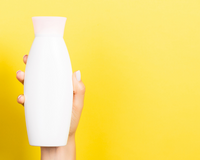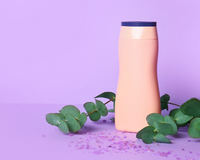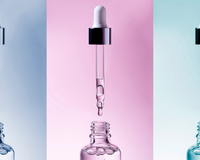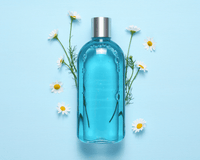What Skin Care Products are Best for Me
What skin care products are best for me, you should know your skin type before asking. Skin care is, or should be, individualized. After all, we all have unique skin types, tones, textures, concerns, and objectives. While one person seeks a facial moisturizer that can help erase fine wrinkles, another should use one that will increase moisture. Someone may seek out a serum to relieve irritation and redness, whilst another may seek out a serum that clears acne scars and prevents future outbreaks.
With the most recent advancements in beauty technology, trends, and formulas pointing to a more customized approach as the future, the value of utilizing products suited to your specific requirements is becoming more generally recognized. However, without the guidance of a board-certified dermatologist, it may be more perplexing than ever to grasp precisely what those needs are, let alone how to put together a personalized regimen. We give the opportunity to those who say what skin care products are best for me, to find out for themselves with a little research.
Understand Your Skin Type
You cannot choose a care product without knowing your skin type. First, you need to understand your skin type. After that, you should research the products. The most essential aspect in choosing which skin care products will work best for you is your skin type. There aren't always terrible products, however, people with various skin kinds might occasionally use the wrong product for their skin type.
You may have guessed it by now, but those with acne-prone or sensitive skin should exercise extreme caution when it comes to the chemicals in their skin care products. You're truly the winner here for those of you with oily skin: Oily skin can tolerate a broader variety of chemicals that can cause acne or irritation in other skin types.
For Oily Skin: containing alpha hydroxy acids, benzoyl peroxide, and hyaluronic acid if you have oily skin. These chemicals are excellent at controlling excessive sebum production. Hyaluronic acid, on the other hand, provides moisture in just the right place.
Dry Skin: containing shea butter and lactic acid if you have dry skin. These compounds hydrate and gently exfoliate dry skin, keeping it looking beautiful.
Sensitive Skin: containing aloe vera, oats, and shea butter if you have sensitive skin. They are effective moisturizers that seldom cause skin irritation.
Ingredients to Look for
Glycerin: This component is the foundation of all hydrating products.
Hyaluronic acid and ceramides: Both of these compounds are key moisturizing elements found naturally in the skin. When seeking glycerin and ceramide in lotions and creams, hyaluronic acid serum should be preferred.
L-Ascorbic acid is a kind of vitamin C: Vitamin C, namely l-ascorbic acid, is an antioxidant that acts to repair UV radiation damage and promote collagen synthesis.
Tocopherol (Vitamin E) (Vitamin E): Vitamin E has characteristics comparable to Vitamin C and works best when paired as a skincare power couple.
Retinol: Retinol is an important component to seek in nighttime skincare products. It works by destroying skin cells and stimulating collagen production.
Niacinamide is a kind of vitamin B3 (Vitamin B3): This chemical is excellent for reducing oil while hydrating and leveling out face tone.
Materials to Avoid
Fragrance/Perfume: Added perfumes are known to cause skin allergies and irritation, so avoiding them is especially crucial if you have sensitive skin.
Sulfates: Sulfates are common cleaning ingredients in body washes and shampoos. They deplete the hair and skin of natural oils, which can cause discomfort.
Parabens
Parabens are frequently used as chemical preservatives in goods to inhibit bacterial development. They are recognized as estrogen mimics by other industry professionals, and they can be harmful over time by upsetting the hormonal balance. This is especially troublesome for young children and individuals who are at risk of breast cancer.
Sequestrants for Formaldehyde
Because formaldehyde is a recognized carcinogen, it is uncommon to find it on an ingredient list. However, they often replace it with a different term for a chemical that releases formaldehyde over time to act as a preservative. According to him, they did not show whether these substances are dangerous in this capacity. But you should check for possible allergies.
Natural may not always imply superior.
Although seeing familiar terms in the table of contents might be reassuring, it does not necessarily indicate the best course of action. For example, he says that poison ivy is a natural oil, but it's not something you want to spread all over your skin.
He also advises that seeing the phrases natural and organic on a product label is sometimes just a marketing ploy. These promises are not regulated. There is no industry standard. They may make false promises. You can naturally brand by referring to just one or two of the ingredients on the list.
Take note of the component sequence.
You have identified the key components you want to avoid or follow. Then notice where they appear in the ingredient list. It typically makes up about 80% of the composition of the product. That's why you should carefully study the first five components.
Chemicals are ranked from highest concentration to lowest concentration. So if one of the top five items is troublesome or possibly unpleasant, you should avoid that product. Similarly, if you're looking for a product that has specific ingredients but only lists them towards the end, it's not worth your money. It makes up a very small part of the entire product. The advantages of the components will not be felt.
Don't be put off by the long ingredient list.
When it comes to the food we eat, we often look for a shorter, more recognizable ingredient list. A shorter list is easier to understand. It may not always be enough for the results you want from your skin care products. The ingredient list will inevitably be lengthier when seeking anti aging effects or investing in medical grade skin care products. Don't let this discourage you. Instead, consult a dermatologist or technician to confirm if the product is right for you.









